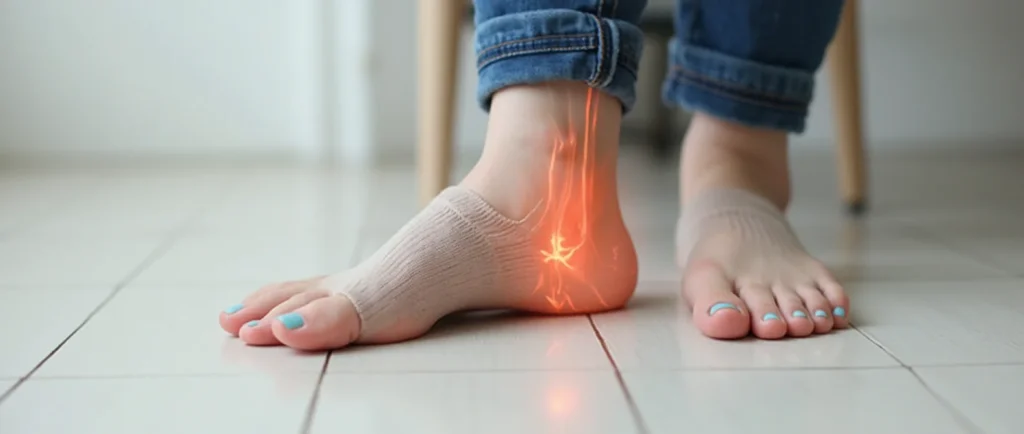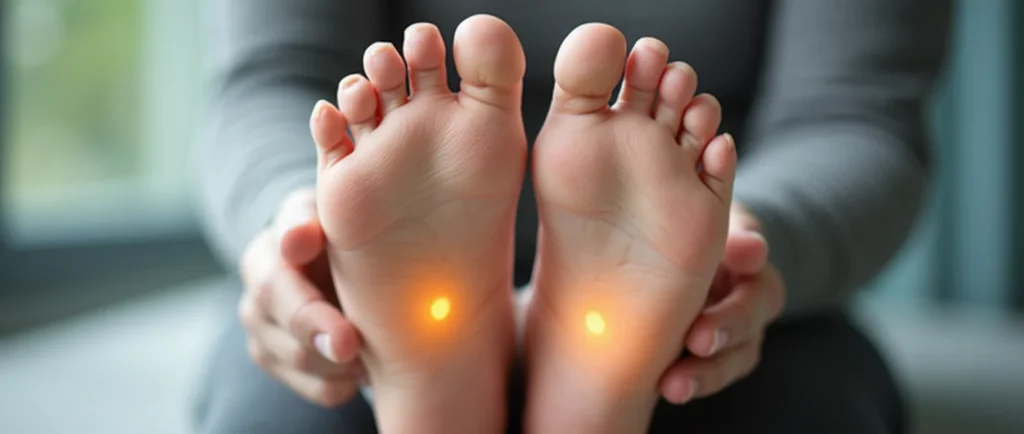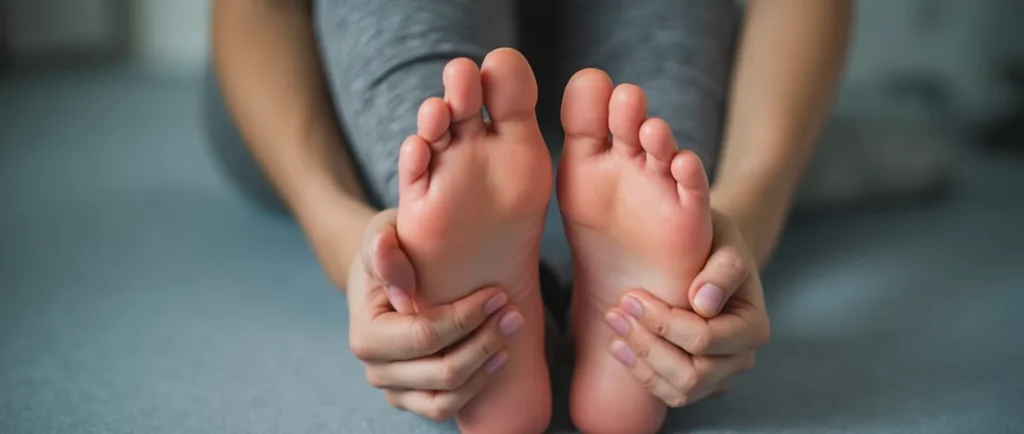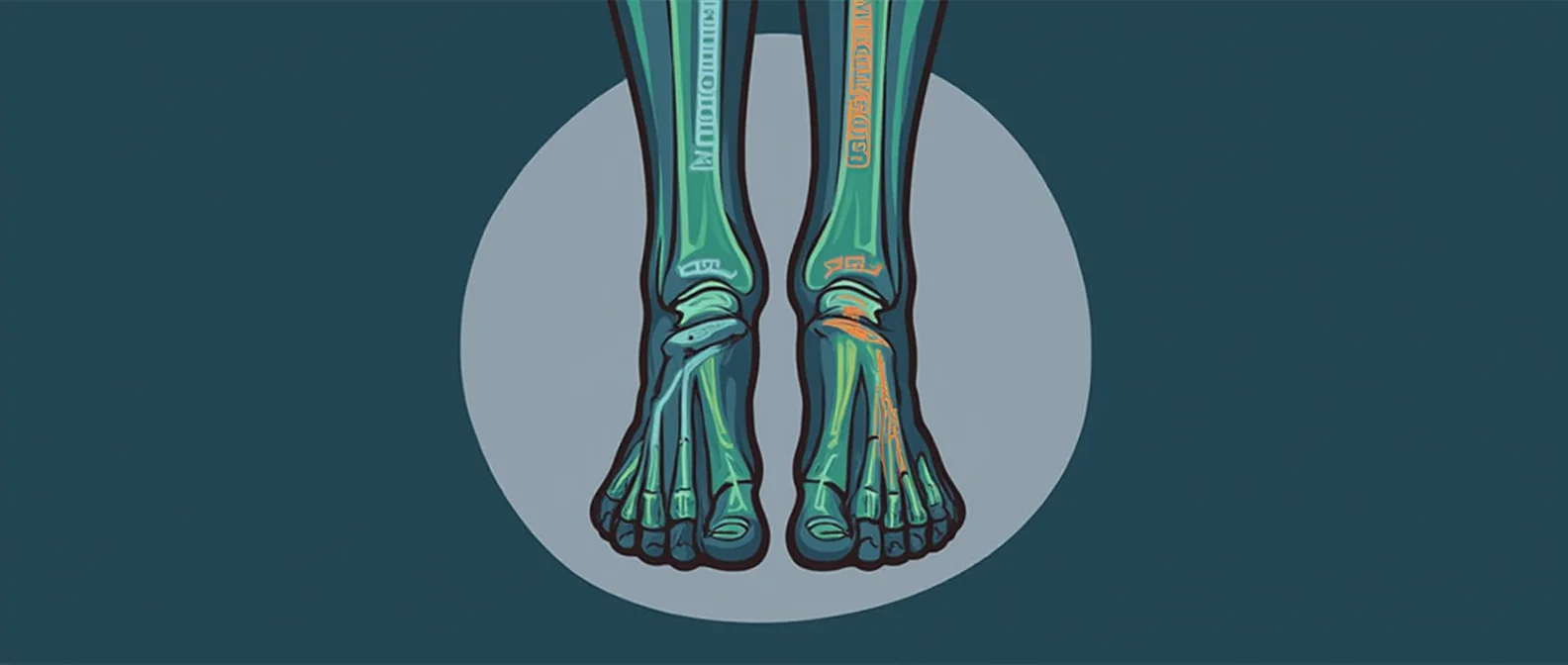Living with foot neuropathy can be incredibly challenging. Whether you experience tingling, numbness, or shooting pains, these sensations often make daily activities feel like an uphill battle. If you’ve found yourself struggling to get comfortable, rest assured—there are solutions that can help manage your discomfort. One such solution is choosing the right socks for foot neuropathy. The right pair of socks can provide cushioning, improve circulation, and protect your sensitive feet from further damage. In this article, we’ll walk you through everything you need to know about choosing the best socks for foot neuropathy, along with top recommendations to help you shop for comfort and support.
Table of Contents
Understanding Foot Neuropathy and Its Impact on Your Feet
Foot neuropathy, also known as peripheral neuropathy, occurs when the peripheral nerves (those that carry signals between your body and spinal cord) become damaged. This damage leads to symptoms like tingling, burning, numbness, and even pain in the feet. The condition is most commonly linked with diabetes, but other causes can include vitamin deficiencies, infections, or traumatic injuries.
Living with neuropathy in your feet can be frustrating, especially since the sensations can vary from mild discomfort to more severe pain. Without proper care, neuropathy can lead to further complications like foot ulcers or infections. That’s why it’s essential to take proactive steps to manage your symptoms.
Why Foot Care Is Crucial for Those with Neuropathy
Proper foot care is paramount for individuals suffering from neuropathy. When sensation is reduced in your feet, you might not notice cuts, blisters, or other injuries that could lead to infections. Moreover, poor circulation can worsen neuropathy symptoms, leading to more discomfort and possible complications. Wearing socks designed specifically for neuropathy is one way to support your feet and promote better health.
Here’s why foot care should be a priority:
- Prevents further nerve damage: The right socks can improve circulation and reduce unnecessary pressure.
- Reduces foot injuries: Seamless designs and cushioned materials protect sensitive feet from abrasions and blisters.
- Enhances comfort: Specialized socks provide a soft, supportive feel, reducing discomfort and pain during daily activities.

Key Features to Look for in Socks for Foot Neuropathy
When shopping for socks to help alleviate neuropathy symptoms, it’s important to prioritize features that will enhance comfort and promote foot health. The right pair of socks can make a significant difference, whether you’re walking, standing, or simply relaxing at home.
Comfort and Cushioning
The primary goal when choosing socks for foot neuropathy is comfort. Foot neuropathy often leaves your feet feeling sore, so cushioning is key. Look for socks that offer extra padding or thick cushioning to provide a soft, supportive feel. This will help absorb shock, reduce pressure, and prevent foot fatigue.
Here are the materials to look for:
- Cotton: A natural, breathable fabric that is soft on the skin.
- Bamboo: A hypoallergenic option that’s soft, moisture-wicking, and antibacterial.
- Polyester blends: These are designed for durability and comfort while keeping your feet dry.
Cushioned socks provide that extra layer of protection, especially for individuals with severe symptoms. If you experience pain from walking or standing for long periods, these socks are essential for providing relief.
Seamless Design for Reduced Irritation
The seams on regular socks can cause irritation or exacerbate discomfort, especially if you have sensitive feet. Many neuropathy sufferers find that socks with seams, or poorly placed stitching, aggravate their condition. Seamless socks eliminate this issue and are designed to avoid pressure points and rubbing.
Opt for hand-linked seamless socks to ensure a smooth, irritation-free fit. This design helps eliminate friction, preventing sores or blisters from forming.
Proper Fit – Not Too Tight, Not Too Loose
A proper fit is critical for anyone, but it’s especially important for people with neuropathy. Socks that are too tight can restrict circulation, leading to increased discomfort and swelling. On the other hand, socks that are too loose may bunch up and create friction, which could cause blisters or abrasions.
To find the right fit:
- Check the size guide: Make sure the socks match your foot size.
- Look for adjustable options: Some socks have extra stretch, allowing them to fit a range of foot shapes.
- Avoid tight bands: Opt for socks that have non-binding tops to prevent constricting your legs.
Properly fitting socks improve circulation, reduce irritation, and provide maximum comfort.
Moisture-Wicking and Breathable Fabrics
Keeping your feet dry is crucial for managing foot neuropathy. Excess moisture can lead to fungal infections or skin breakdown, especially if your feet are numb or have reduced circulation. Socks made from moisture-wicking fabrics help regulate temperature and keep your feet dry, preventing discomfort caused by sweat.
Consider socks made from:
- Merino wool: Naturally moisture-wicking and odor-resistant, merino wool helps keep feet dry while providing warmth.
- Synthetic blends: Many modern socks are made from moisture-wicking materials such as Coolmax or Drymax, which draw sweat away from the skin.
By choosing socks that wick moisture away, you protect your feet from infections and improve comfort, even during physical activities.

Top Socks for Foot Neuropathy – Our Recommended Picks
Now that you understand the key features to look for, let’s explore some of the best socks on the market for foot neuropathy. These socks are specifically designed to offer comfort, support, and protection for sensitive feet.
Best Cushioned Socks for Foot Neuropathy
Cushioned socks provide excellent shock absorption, which can be especially beneficial if you spend a lot of time on your feet. Look for socks that feature extra padding around the arch and heel for additional comfort.
| Brand | Features | Pros | Cons |
|---|---|---|---|
| Sockwell | Merino wool, moderate cushioning | Soft, moisture-wicking, durable | May feel too thick in warmer weather |
| Dr. Comfort | Extra cushion and arch support | Great for diabetic neuropathy, cushioned heel | Higher price point |
| Therafirm | Graduated compression with cushioned sole | Good for circulation and comfort | Available in fewer color options |
Best Seamless Socks for Sensitive Feet
If irritation is a concern, seamless socks are an ideal choice. These socks provide a smooth, uninterrupted fit that reduces friction and irritation, which can be crucial for neuropathy sufferers.
| Brand | Features | Pros | Cons |
|---|---|---|---|
| Silkies | Seamless design, soft cotton blend | Ideal for sensitive skin, lightweight | Less cushioned than other options |
| Socks for Life | Seamless, therapeutic support | Comfortable, promotes healthy circulation | Not as durable as some competitors |
Best Moisture-Wicking Socks for Neuropathy Relief
For those concerned with keeping their feet dry, moisture-wicking socks are essential. These socks manage sweat and prevent your feet from feeling damp, even during extended periods of wear.
| Brand | Features | Pros | Cons |
|---|---|---|---|
| Thorlos | Cushioning and moisture-wicking fabric | Keeps feet dry, extra padding for comfort | May feel too warm in hot weather |
| Balega | High-performance moisture-wicking fibers | Soft, breathable, supportive for runners | Can be tight for larger feet |

How to Choose the Right Socks for Your Foot Neuropathy Needs
Choosing the right socks requires consideration of your specific symptoms and needs. Here are some tips to guide you in selecting the perfect pair:
Consider Your Foot’s Sensitivity and Health Status
If you have severe neuropathy, opt for socks with extra cushioning to protect your feet from pressure points. For moderate symptoms, you might prefer a balance of cushioning and moisture-wicking properties. If your neuropathy is less severe, lightweight, seamless socks may be a good option.
Consider Additional Footwear for Optimal Comfort
While the right socks can make a huge difference, combining them with the right footwear can maximize your comfort. Look for shoes that offer good arch support and cushioning, and consider orthotic insoles if needed. Together, well-chosen socks and shoes can help manage your neuropathy symptoms and improve your daily comfort.
Frequently Asked Questions (FAQ)
What Are the Best Socks for Foot Neuropathy?
The best socks for foot neuropathy are those that provide cushioning, a seamless design, and moisture-wicking properties. Look for socks made from soft, breathable materials like merino wool or cotton.
Can Foot Neuropathy Be Managed with Socks Alone?
While socks provide essential support, they should be part of a comprehensive approach to managing neuropathy. Be sure to consult with a healthcare provider for additional treatments, including medication, exercises, or lifestyle changes.
How Often Should I Replace My Neuropathy Socks?
Replace your socks every 6–12 months or sooner if they lose their cushioning, elasticity, or moisture-wicking ability. Regularly inspect your socks for signs of wear and tear.
Are There Socks Specifically for Diabetic Neuropathy?
Yes, many brands offer socks designed specifically for diabetic neuropathy. These socks often feature extra padding, seamless construction, and non-binding tops to ensure comfort and prevent circulation issues.
Conclusion: The Right Socks Can Make a Big Difference
Choosing the right socks for foot neuropathy is an essential step toward improving your comfort and managing your symptoms
latest posts
- Spectra Sock for Prosthetic Foot: Comfort, Durability, and Enhanced Mobility
- best Socks for Foot Neuropathy – Shop Comfort and Support
- Do Compression Socks Help Neuropathy? Find the Right Pair Now
- Best Compression Socks for Neuropathy – Relieve Pain Today
- Socks for Neuropathy: How They Help Relieve Foot Pain and Improve Comfort
You provide useful and clear content. Thank you for your efforts.
This article remains a trusted resource for many people who want to improve their daily comfort and manage the symptoms of neuropathy.

